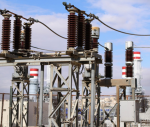You are here
In Turkey’s crosshairs
Aug 23,2016 - Last updated at Aug 23,2016
Turkey’s priorities in Syria are changing following the failed military coup last month. Ankara is rebuilding regional alliances amid altering geopolitical realities, most notably along the Turkish-Syrian borders.
There are clear signs that a new understanding over Syria is taking shape following the Erdogan-Putin summit in St. Petersburg two weeks ago.
Ankara and Tehran are also on the verge of adopting a fresh approach to the Syrian crisis. Turkey now sees a role for Syrian President Bashar Assad in the transitional phase, a position that underlines Ankara’s strategic pivot towards Moscow and Tehran.
The common goal for these three capitals now is to neutralise the recent surge of pro-US rebel groups fighting under the banner of the Syrian Democratic Forces (SDF) in northern Syria.
The SDF is an alliance of mostly Kurdish fighters, in addition to Arab, Assyrian, Armenian, Turkmen and Circassian militias.
Recently, the SDF captured the strategic border city of Manbej from Daesh, after a month of bitter fighting. Reports now speak of hundreds of Free Syrian Army (FSA) fighters getting ready to cross the Turkish borders in a race against SDF to take Daesh-controlled region of Jarablus.
On Tuesday, Turkish artillery bombarded Daesh positions in Jarablus and areas under SDF near Manbej.
Ankara now sees Syria’s Kurds as an immediate danger to its national
security.
Iran, Russia and Turkey have no interest in seeing the Kurds carve out an autonomous enclave in northeastern Syria.
Ironically, the Damascus regime shares that view as well, and in the past few days its air force attacked Kurdish positions in Hasakeh for the first time in years, bringing a shaky truce to an end.
The aerial attacks prompted the US-led coalition to scramble aircraft to protect American special ground forces there. In response, the Kurdish People’s Defence Units (YPG) launched a major attack on Monday to take the last government-controlled parts of northeastern Hasakeh.
Syria’s Kurds have declared their own autonomous region in 2013 and this year they founded the Federation of Northern Syria-Rojava, a move rejected by both Damascus and Ankara.
Iran would not want to see Syria’s Kurds ceding and setting up their own
mini-state either, for fear that this would incite its own Kurdish minority.
The events of the last few years inspired the Kurds in Turkey, Syria and Iraq to consolidate their historic claim to create their own independent state or states as part of Greater Kurdistan.
Iraqi Kurdistan has been outlining its borders and encroaching on contested territory in northern Iraq.
The peshmerga forces have been instrumental in checking Daesh’s expansion in Iraq and their role in the upcoming battle to liberate Mosul remains controversial.
The Baghdad government, along with Tehran, is weary of Kurdish territorial ambitions following the liberation of Mosul.
Turkey has been fighting a war against Kurdish Workers Party (PKK), following the collapse of a truce last year.
Ankara is about to propose again plans to create a safe zone along its border with Syria in a bid to disrupt Kurdish territorial control following the recent gains by SDF in Manbej.
The US did not support the Turkish proposal last year.
On the other hand, the US has been working closely with SDF and YPG, providing advisers on the ground and aerial support, with the objective of overrunning Daesh in Raqqa.
SDF has been particularly successful in its recent battles against the terrorist group. But with the Turkey-backed FSA fighters racing towards Jarablus this week, the likelihood of confrontations between FSA and SDF is higher than ever before.
The problem for SDF and YPG is that the territory they control has
ethnic minorities other than Kurds.
There have been reports that Kurdish militias forced Arabs and others, including Turkmen, to leave their towns and villages.
Turkey will use this as a legitimate excuse for intervention against Syrian Kurdish forces.
The recent understanding among Ankara, Moscow and Tehran over Syria priorities will further complicate the situation in this war-torn country.
The regime is likely to lose most of Hasakeh, boosting the autonomous Kurdish federation in that region.
In Iraq, the battle for Mosul will lead to clashes between the peshmerga, on the one hand, and local tribes, the Iraqi army and the Shiite mobilisation units, on the other.
For now, it appears that the Kurds in Iraq and Syria have the most to gain from the current regional turmoil.
For players like Turkey and Iran, the threat of Kurdish independence takes priority over defeating Daesh, which is already on the retreat.
A new chapter is about to open in the long and costly Syrian saga, and it will be as bloody and controversial as previous ones.
The writer is a journalist and political commentator based in Amman.












